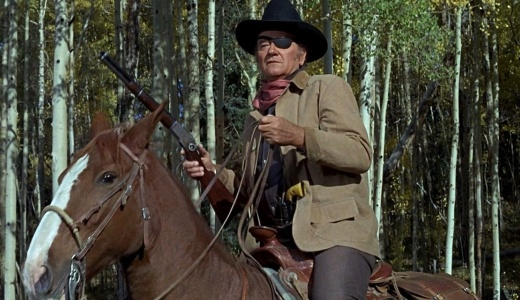Yesterday, I wrote about the spectacular implosion of King Arthur: Legend of the Sword. Director Guy Ritchie was given $175 million to make a blockbuster for Warner Bros., and he did his best, saturating the screen with jarring camerawork; skyscraper-sized elephants; and a smirking, cynical tone. It was as hip and as self-aware as a film could be, checking all the boxes that we moviegoers supposedly want in a 21st-century summertime flick.
But it bombed, making just $14.7 million and likely killing what Warner Bros. hoped would be a sequel-rich, blockbuster bovine that could be milked for years to come.
What happened? Game of Thrones, that’s what. At least that’s what Charlie Jane Anders of Wired says.
King Arthur’s been a staple in heroic literature for a long time now. Maybe too long, the folks at Warner Bros. seemed to say. The Arthur we’ve known feels just so old-fashioned compared to the flawed, cynical, scheming protagonists from George R. R. Martin’s sweeping books (and HBO series). Thus, Ritchie and the folks from Warner Bros. gave the story a bit of Westerosian overhaul. It’s “not your father’s King Arthur,” one of the film’s producers allegedly said, and indeed it’s not: We see loved ones skewered by death-demons, innocents sacrificed to tentacle beasties and a father being tortured in front of his prepubescent son. This Arthur is no uncomplicated do-gooder, but rather a reluctant hero and conflicted cad before he transitions into kingly champion. Writes Anders:
In fact, Ritchie’s King Arthur made me wonder if we can even appreciate a fun, good-hearted version of the original heroic narrative anymore. Maybe these tropes have been subverted and deconstructed so often, particularly when it comes to epic fantasy, that no one wants to buy into the archetypes now. Maybe in this post-Game world, everything in this genre looks like a knockoff—even movies based on the hero’s journey that helped inspire it. Or maybe the once and future king is just waiting for someone who can pull him out of the darkness and help him reclaim his throne.
Now, is it a coincidence that Warner Bros. was also the studio behind Superman’s angst in Man of Steel or giving Batman guns in Batman v. Superman: Dawn of Justice? Maybe, maybe not. But I don’t think it’s just Arthur who suffers from cynicism, nor do I think that Game of Thrones is solely to blame. In spite of our legion of superhero movies, we live in a post-heroic world. Chivalry—the engine that powered Arthur’s legend for centuries—has run out of gas.
Or so Hollywood says.
Listen, I’m no hater of complex, conflicted protagonists. I like a little murk in my heroes, because I think that’s more representative of who we all are: sinners who don’t always do what we should or want to, no matter how hard we try. So when I see Tony Stark/Iron Man struggle with his own arrogance or Batman battle his past, it feels right. I’ve written books about it.
But not every hero requires a bleak backstory or needs to grapple with inner angst. Anders wonders whether you can have a “good-hearted” Arthur story anymore. I’m beginning to wonder if good-hearted movies of any sort are as rare as 300-foot elephants.
Looking back at the films I’ve reviewed this year, most share a common descriptor: bleak. [Caution: Spoilers ahead.] Life—a movie with a jaunty, affirming title—ended on a note that made the original Alien look like a My Little Pony episode. The Belko Experiment featured a bunch of coworkers forced to murder each other until only one remains—with the leaders of the “experiment” announcing those survivors will now be thrust into an ominous “phase two” sequel.
Now, I get it: These were horror movies, and horror movies don’t always have chipper, family friendly endings. But it doesn’t end there. Everyone dies in Free Fire. A free society dies in The Circle. For a while, I thought my editor was simply assigning me depressing movies as some sort of punishment. But maybe not. Maybe Hollywood’s screen tests indicate that bleak is big, and that everything should be nice and nihilistic. Even the comedies. Shirley MacClain’s latest flick wasn’t just called The Last Word for nothing.
“Who needs characters you can root for?” Movie executives seem to be saying. “Who wants happy endings? We need darkness! Pain! Angst! That’s what people want on a Friday night! Their tears will season their overpriced popcorn!”
There are exceptions, of course—movies where you can find heroes and hope and your protagonists don’t necessarily die tragically in the end. The Fate of the Furious, maybe. Beauty and the Beast. Guardians of the Galaxy Vol. 2.
Whoa! I just named three of the year’s four highest-grossing films! Who’da thunk?
Oh, and what’s the year’s fifth highest-grossing film? The LEGO Batman Movie, which conspicuously subverts Batman’s bleak, contemporary trappings and allows us to (gasp) have fun with him again.
“Black,” LEGO Batman says during the opening credits. “All important movies start with a black screen. And music. Edgy, scary music that would make a parent or studio executive nervous. And logos. Really long and dramatic logos.”
Again, I’m OK with a darker Batman. Christopher Nolan’s movies were quite powerful (though not, it must be noted, particularly family friendly). But just because Nolan’s movies were dark and good doesn’t mean that everything good has to be dark, or that everything dark is particularly good. Maybe King Arthur: Legend of the Sword didn’t really need to be the next Game of Thrones. Maybe it simply needed to be true to the old King Arthur.
Are heroes passé these days? Maybe. We live in a jaded day now. It’s hard to trust anyone, no matter what color of hat they’re wearing. Maybe films shouldn’t be fun when we’re faced with so many serious problems.
And yet when Hollywood does give us a fun hero or two, we seem to watch them. Go figure.






Recent Comments